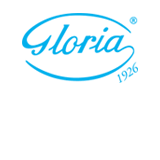The troubled course of the CHIVA Cure through clinical studies: a critical review
Accepted: 10 October 2023
HTML: 12
All claims expressed in this article are solely those of the authors and do not necessarily represent those of their affiliated organizations, or those of the publisher, the editors and the reviewers. Any product that may be evaluated in this article or claim that may be made by its manufacturer is not guaranteed or endorsed by the publisher.
Authors
The treatment of Superficial Venous Insufficiency (SVI) encompasses a wide and disparate array of techniques, ranging from destructive procedures (endovascular ablation, stripping and sclerotherapy) to the conservative hemodynamic procedure (CHIVA). This variety of options betrays a wide degree of uncertainty on the recommended treatment, mainly due to technical biases in performing the CHIVA Cure that heavily affect the results from Randomized Controlled Trials (RCTs). In fact, the authors of the last Cochrane Review (CR) on the CHIVA Cure disowned its superiority based on the results from five RCTs in which more than 200 of the overall 419 participants allocated to the CHIVA arm had actually received treatments other than the CHIVA Cure. Further, the Guidelines (GLs) from both the American and the European Society for Vascular Surgery recommend the CHIVA Cure only to vascular surgeons experienced with this technique, contradicting what is expected of a specialist, i.e. mastery of the treatment of diseases in his or her specialty. Finally, CRs and GLs do not take into any account the ethically relevant issue that destructive procedures, recommended for vascular surgeons not experienced in the CHIVA Cure, will fatally deprive the patient of the Great Saphenous Vein (GSV), which is the first-choice infra-inguinal graft for the treatment of severe peripheral artery disease and to ward off the severely disabling condition resulting from limb loss, when angioplasty/stenting is not feasible. In this paper we review and discuss the RCTs, CRs, and GLs concerning the CHIVA Cure available at June 2023 on Medline and Cochrane Central databases.
How to Cite

This work is licensed under a Creative Commons Attribution-NonCommercial 4.0 International License.
PAGEPress has chosen to apply the Creative Commons Attribution NonCommercial 4.0 International License (CC BY-NC 4.0) to all manuscripts to be published.

 https://doi.org/10.4081/vl.2023.11886
https://doi.org/10.4081/vl.2023.11886





